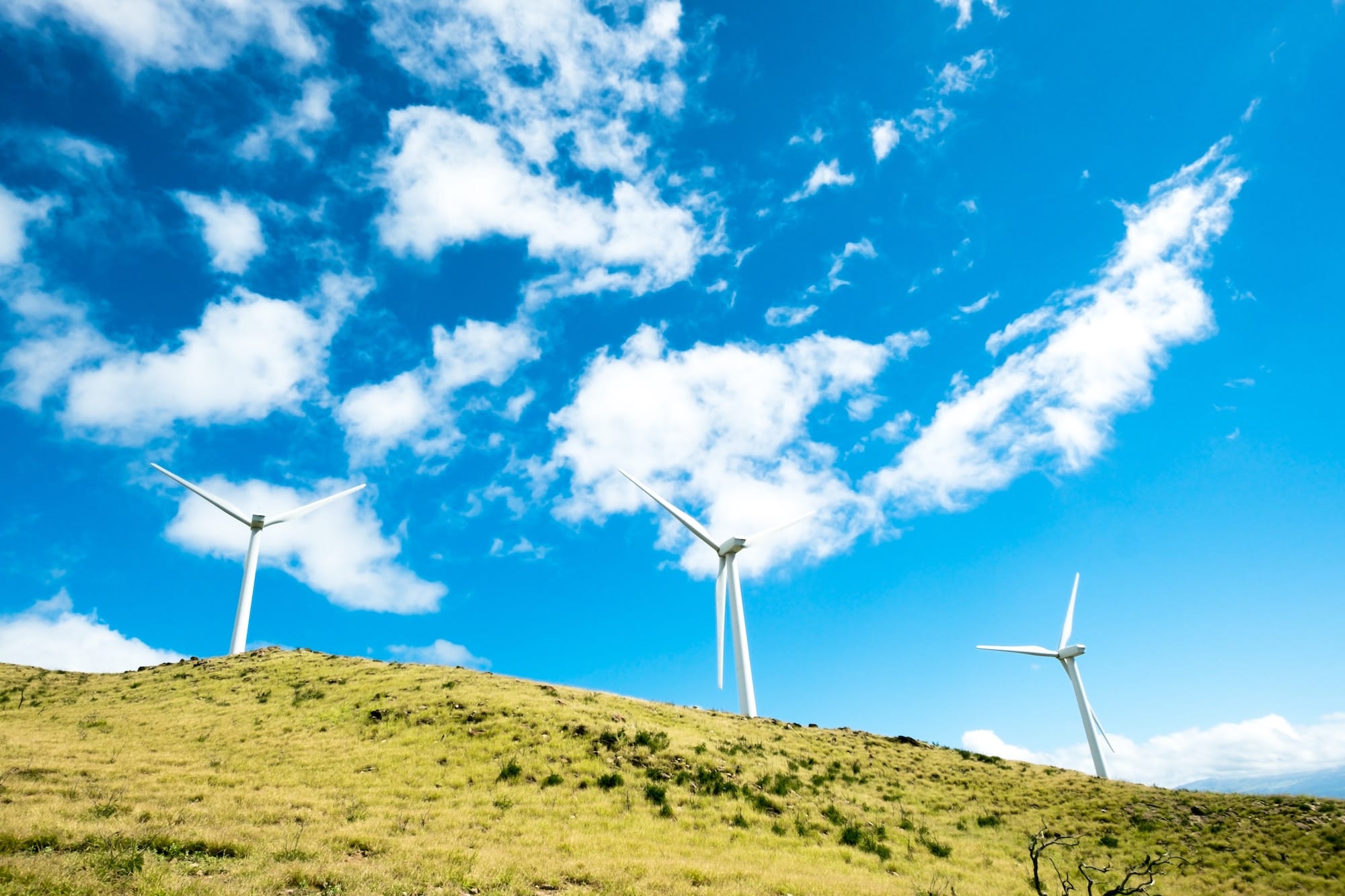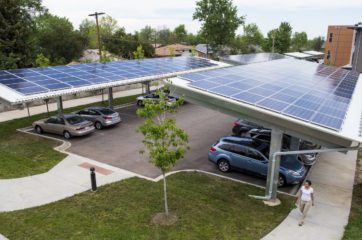In 1959, Hawaii became the 50th and last state to join the United States. Almost sixty years later, it’s emerged as one of the nation’s most progressive and forward-thinking states, known for its many legislative firsts.
Hawaii was the first state to pass a bill in support of a universal basic income, the first to ban sunscreen harming coral reefs, and the first to mandate movie theaters provide closed captioning, demonstrating an unprecedented commitment to the Deaf community. Perhaps as a result of its forward-looking nature, the country’s most ethnically and racially diverse state also ranks as the one whose residents enjoy the highest level of well-being.
Although it is progressive in so many ways, the area that Hawaii likely excels in the most is its climate action. The state was the first to formally accept and extend upon the provisions of the Paris Climate Agreement after President Trump announced US withdrawal. In 2015, Hawaii became the first state to mandate 100% renewable energy and economy-wide carbon neutrality by 2045 (HB 623), and the first to require the state’s public schools and universities become net-zero facilities by 2035 (HB 1509). Rep. Chris Lee, who authored the legislation, hoped enacting these pledges would spur the state to take climate change more seriously.
“At the end of the day, we are going to be receiving the worst impacts of climate change from any state in the country,” said Lee, one of Hawaii’s greatest climate champions. “So we must act.”
Now, Lee and Hawaii’s other climate-focused lawmakers look to do something no state legislature has ever achieved: impose a fee on carbon pollution.
What carbon pricing bills have been introduced?
This session, five bills relating to carbon pricing have been introduced in the legislature. Four bills impose direct fees on carbon emissions, while one is a bit more preliminary, requiring the state to allocate funding for a statewide study on carbon pricing.
The proposed bills that directly tax carbon vary a bit from one another:
- HB 1287 levies a $20 per carbon ton that increases by $5 annually. Half the revenue is rebated back to taxpayers, a quarter is invested in renewable energy, and a quarter in the removal of hazardous waste.
- HB 1459 / SB 1463 repeals a state fuel tax and replaces it with a $6.25 per carbon ton fee.
- HB 1579 imposes a $15 per carbon ton. Revenue is allocated between a laundry list of environmental programs.
One thing the bills have in common, however, is that that they are all unlikely to pass this session, according to legislators. Only the the carbon pricing study bill is steadily gaining momentum.
The study bill (HB 1584), sponsored by Rep. Nicole Lowen, appropriates $200,000 to the University of Hawaii to conduct a comprehensive study on the potential costs and benefits different carbon pricing mechanisms may have in the state.
Lowen told Climate XChange the amount of funding allocated to the study is subject to change, and that she wants to amend the bill language to allow a different group to commission the study if it is better suited to do so than the University.
What makes Hawaii well-positioned to pass strong climate policy?
For one, Democrats hold overwhelming majorities in the state legislature, outnumbering Republicans 24-1 in the Senate and 46-5 in the House.
Additionally, in November, Gov. David Ige’s Climate Change Mitigation and Adaptation Commission called for the state to implement carbon pricing, declaring that “putting a price on carbon is the most effective single action that will achieve Hawaii’s ambitious and necessary emissions reduction goals.”
While the announcement did not outline specific carbon pricing mechanisms, it indicated that the concept of imposing a fee on carbon pollution is gaining traction within the state’s executive branch.
So, why is passing carbon pricing in Hawaii still such a challenge?
Most legislators believe the only bill that has a real shot to pass this session is the study bill. It passed out of the House Energy and Environmental Protection Committee on January 31st with a 6-0 vote, and is slated for several upcoming hearings.
Lowen, the Chair of the House Committee of Energy and Environmental Protection, said it is inherently difficult to gain political support for legislation that promotes taxation.
“When you say the word ‘tax’, even if you call it a ‘price’ or a ‘fee’ or a ‘cost’, people often react poorly to that,” Lowen said. “We have a very high cost of living in Hawaii, and there’s a lot of concern regarding anything that would raise costs and hurt the low-income people trying to make ends meet.”
Lowen said any carbon pricing legislation the state enacts down the road must be carefully drafted to minimize regressivity, either by rebating revenue to low-income communities, or reducing other regressive taxes.
Some legislators, however, expressed concern that the state isn’t moving fast enough on climate action. Sen. Ruderman, who co-sponsored one of the proposed carbon pricing bills (HB 1459), said in an interview with Climate XChange that lawmakers have been overly concerned with adapting to climate change rather than mitigating its effects.
“The discussion usually takes … the form of, ‘seas levels are going to rise, certain parts of the island are going to be inundated with water in 20 to 30 years, and we need to plan for that,’” Sen. Ruderman said. “But climate change will not be some neat tidy little thing, where it gets a little bit warmer and the oceans rise a few feet. It is going be disastrous in ways we can’t imagine.”
Lee, who supports the study bill and is a key figure in the state’s climate politics, said that paying for carbon emissions now will ultimately prove cost-effective.
“Every dollar we put up-front in mitigating and adapting to the climate today is many, many dollars less than our kids will have to pay just a few year down the road,” Lee said. “The faster we accelerate our transition and get off of fossil fuels, the more money we save, the more jobs we create, and the more stable our economy becomes. That’s to say nothing of protecting our environment, coastal communities and way of life.”
If you want to stay informed on state carbon pricing campaigns across the country, sign up for the State Carbon Pricing Network Newsletter here and stay tuned for future Climate XChange updates.









